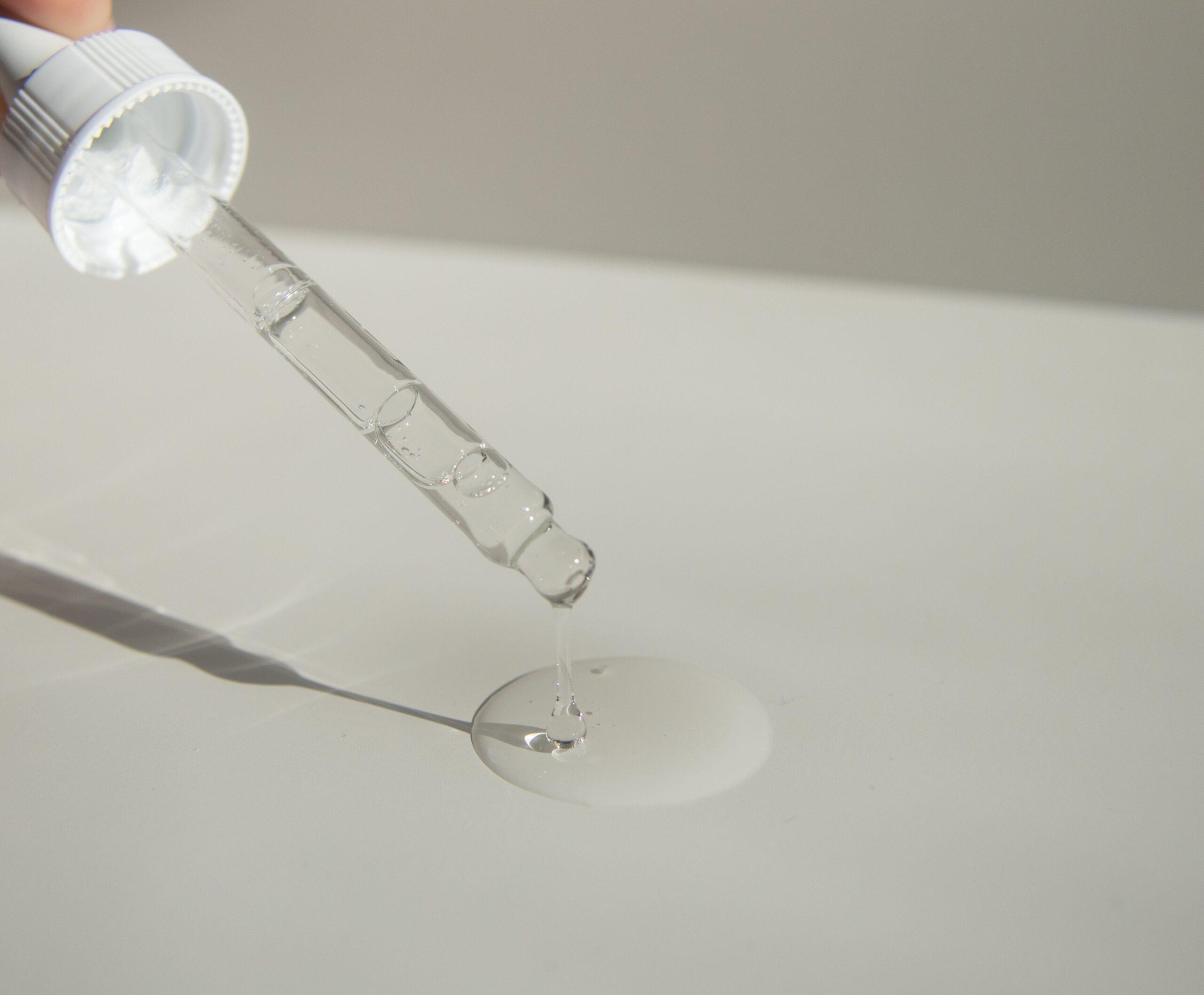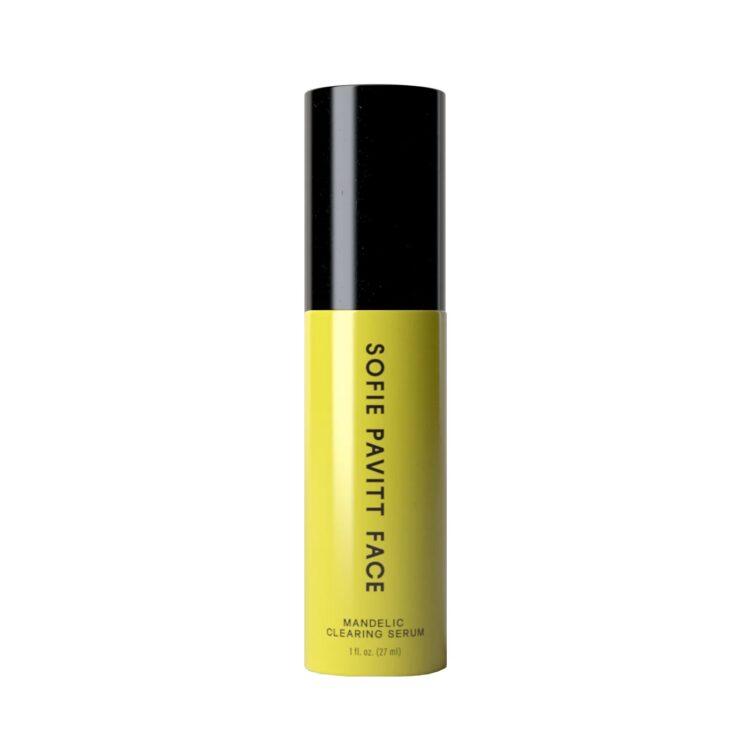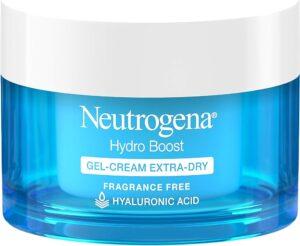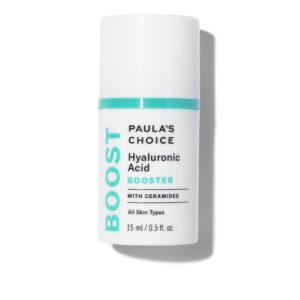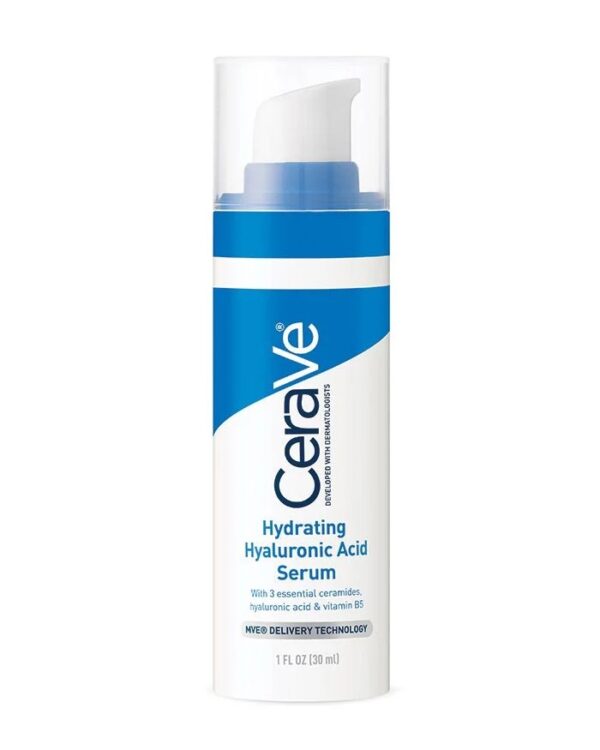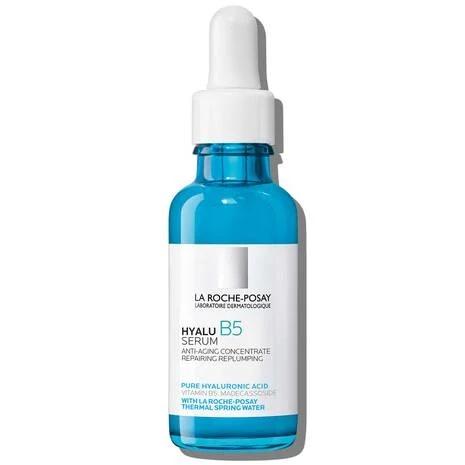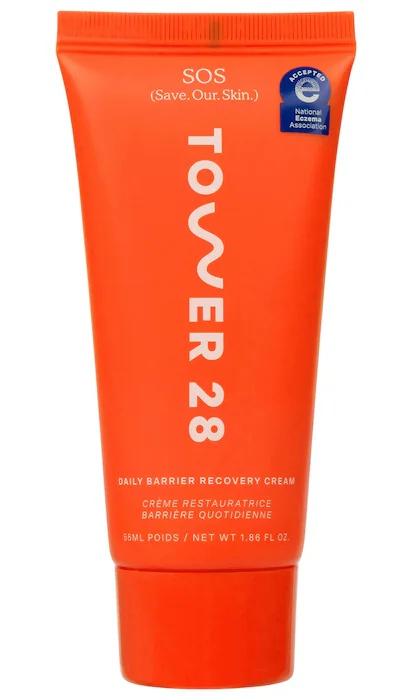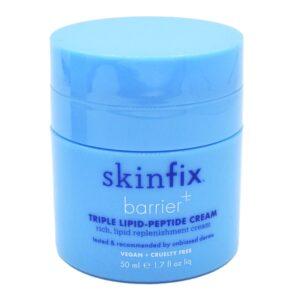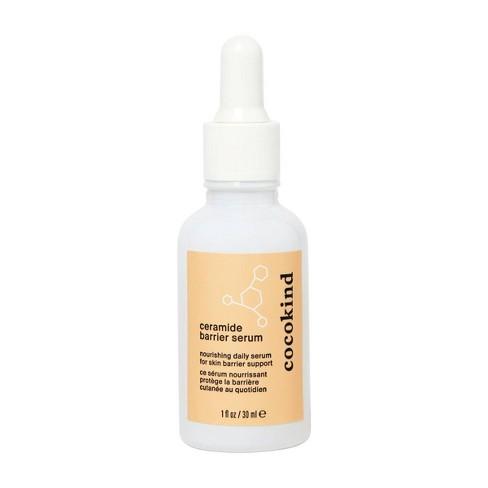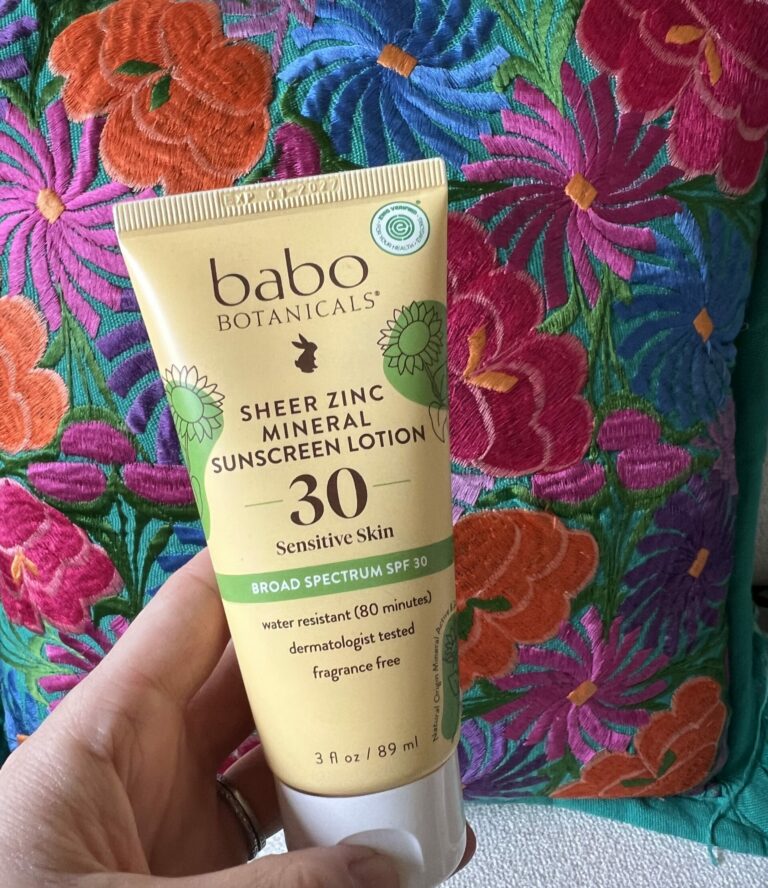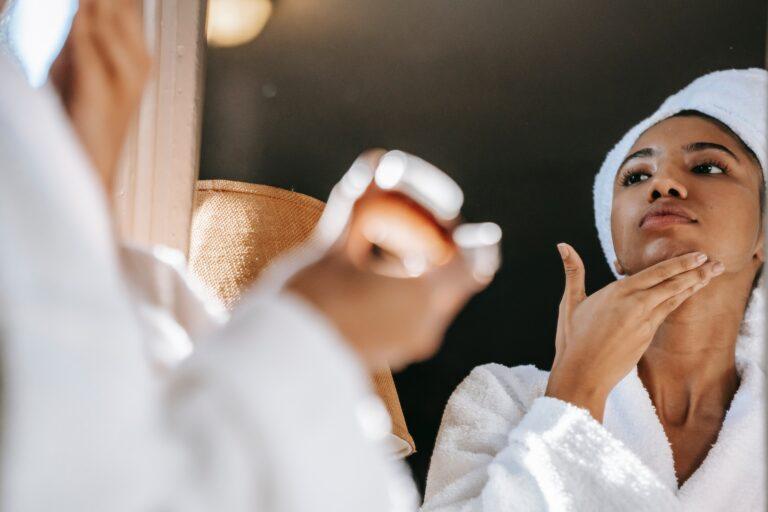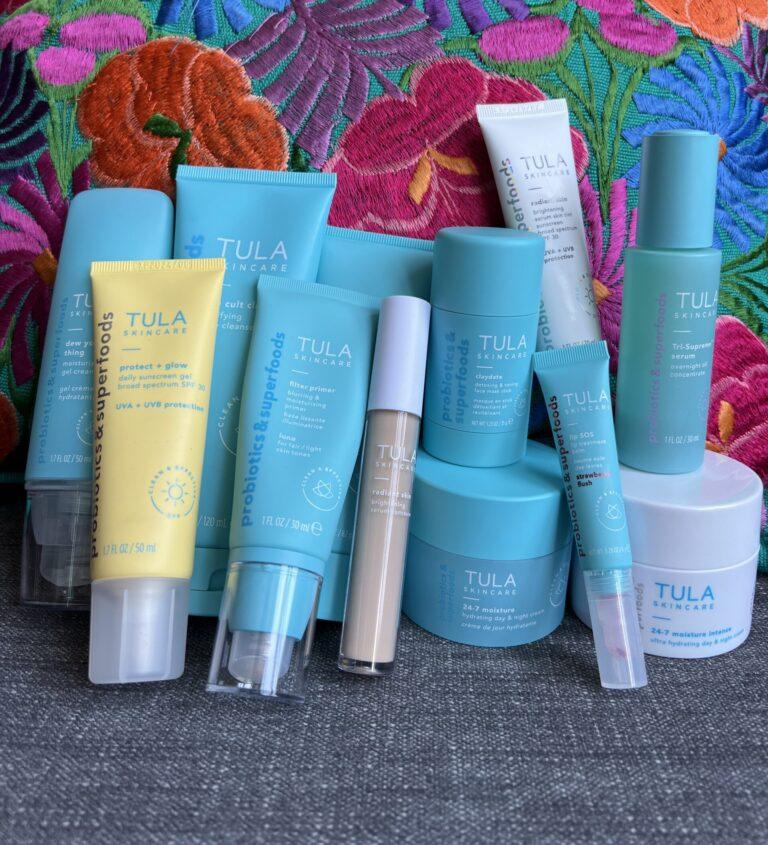A Beauty Editor Answers: Is Hyaluronic Acid Good For Acne?
To be honest, the question “Is hyaluronic acid good for acne?” is something I’ve pondered (and been on the fence about) for years. I’ve been dealing with hormonal acne for a very long time (including acne problems at 30), and have tried just about every acne-fighting treatment and ingredient (except for Accutane) to battle the breakouts. I’m currently using spironolactone to control my monthly hormonal acne situation.
One thing I’ve learned is that it’s not just about what’s going on inside your body when it comes to acne. It’s pretty important to take into account what you’re putting on your skin, too. Especially because certain ingredients can really clog pores and cause further breakouts.
I’m sure you already know that there’s more than one active ingredient available that work to target acne (think benzoyl peroxide, salicylic acid, retinol, and other BHAs and AHAs). On the flip side, there are also ingredients available that work to calm inflammation and keep your skin hydrated and plump, too. Hyaluronic acid is one of those ingredients that can help moisturize a dry dermis and could benefit folks with acne-prone skin.
But don’t take that to mean that only acne-prone skin could use hyaluronic acid (HA). In fact, the magic elixir benefits all skin types.
That being said, there has been some chatter in the beauty world that the benefits of hyaluronic acid might not be all they’re cracked up to be. Again, the question of “is hyaluronic acid good for acne” might be a tricky one to cover, since there are a few mixed reviews on whether HA helps or hinders your skin.
Below, I dive into everything you need to know about if hyaluronic acid is good for acne or not. Remember that I am not a doctor or dermatologist—just a longtime beauty editor who has reported on skin for years and has also tried a lot of different things for my hormonal acne.
Is Hyaluronic Acid Good For Acne?
There was an article that was published in Harper’s Bazaar a few years ago questioning the efficacy of hyaluronic acid. Some folks have reported that hyaluronic acid actually causes a reaction on their skin—either it makes them break out, causes a sort of rash, or just makes their skin drier, rather than more hydrated.
In this case, I think it’s really important to pay attention to how your skin reacts to hyaluronic acid. Do what’s called a patch test, applying the product to only a small area of your skin. If you have really irritated skin, consider taking HA out of your skincare routine for about a month and see if your skin calms down. If it doesn’t, then it’s probably something else that’s causing an inflammatory response, and isn’t HA.
On the flip side, HA could be really beneficial for folks who don’t have a reaction to it. The ingredient can act as a super hydrator and can moisturize your inflamed skin, especially when you’re dealing with acne or acne scars.
From my own personal use, I don’t notice any negative side effects in my skin when I use hyaluronic acid. I use the Sofie Pavitt Mandelic Serum almost daily. This formulation features hyaluronic acid as one of the main hydrating ingredients. Additionally, the mandelic serum was specifically formulated for folks with acne-prone skin, so I think, in this case, HA can be really beneficial for folks with breakouts.
What Is Hyaluronic Acid?
HA is a natural substance found in your body. In fact, it makes up a large part of your connective tissue and plays a key part in cell growth.
It’s also a popular ingredient used in skincare products and it’s known for its hydrating and skin-plumping properties. In skincare, hyaluronic acid products often come in the form of a topical serum, cream, or moisturizer.
HA can have a hydrating effect on the skin, as well as a plumping effect, too. Because it acts as a bit of a plumper on the skin, it can temporarily smooth out fine lines and wrinkles on the face. However, for that reason, it’s worth noting that HA can be one of many potential irritants. (Like alpha hydroxy acids, or AHAs.)
What Does Hyaluronic Acid Do For Acne?
- HA can add hydration to your skin without the added sebum production you might find when using an oil.
- In most cases, HA can reduce irritation on the skin. Because some acne treatments can be drying, HA can help to counteract some of this dryness without causing further breakouts or irritation.
- HA can boost the skin barrier. This will further reduce irritation and protect skin from environmental aggressors and moisture loss.
- Ingredients lists that feature HA are also great for treating acne and diminishing scars from acne.
- Bonus perk: Using skincare products with HA can also reduce the appearance of fine lines and wrinkles because it’ll draw moisture to those often-scrunched areas.
Best Hyaluronic Acid For Acne-Prone Skin
Sofie Pavitt Face Mandelic Clearing Serum
I’ve written extensively about how much I love this mandelic serum. It completely changed the texture and radiance of my skin. I love that it prevents breakouts while also not stripping my face and drying it out. I can thank the added HA in this formulation for the mild hydration this serum offers.
Available at Soko Glam
Neutrogena Hydro Boost Hyaluronic Acid Gel-Cream for Extra-Dry Skin
This hyaluronic acid moisturizer really lives up to the hype. I had apprehensions about it at first, but Sofie Pavitt recommends it, and I follow all her recs. It’s really lightweight but hydrating at the same time, and never breaks me out. The star ingredient in this formulation is hyaluronic acid. I also like that this particular product is fragrance-free.
Available at Amazon
Paula’s Choice Hyaluronic Acid Booster
At first, I didn’t really know what, exactly, to do with this little booster. Am I supposed to apply it directly onto my skin, or blend it in with my moisturizer? Turns out, you can really do either. If my skin is feeling extra dry, I like to pump one or two pumps into my hand, along with my moisturizer, and apply all of it to my skin at once.
Available at Amazon and Paula’s Choice
Cerave Hydrating Hyaluronic Acid Serum
This is a great serum to layer underneath your moisturizer. It contains HA, vitamin B5, and ceramides for extra hydration. I also love that it’s affordable and easy to find at the drugstore. One thing to note is that this formula contains isopropyl myristate, which might be pore-clogging.
Available at Ulta | Also available at Amazon
La Roche-Posay Hyalu B5 Pure Hyaluronic Acid Serum
Another serum that many folks love, this pick from La Roche-Posay contains HA, glycerin, vitamin B5, dimethicone, and a bunch of other hydrating ingredients to lock in moisture. I love that it’s geared for sensitive skin and has soothing properties, too.
Available at Amazon | Also available at La Roche-Posay
Tower 28 SOS Recovery Cream
This is a basic moisturizer that does a fantastic job of hydrating dry, parched skin. With HA, ceramides, glycerin, and allantoin, this pick feels pretty lightweight on the skin while thoroughly moisturizing, too.
Available at Sephora | Also available at Revolve and Tower 28 Beauty
Skinfix Triple Lipid Peptide Cream
You can find this moisturizer on my list of best skincare for dry, acne-prone skin. I’ve also written about how much I love the Skinfix Triple Lipid Peptide Cream in another blog post. It’s super creamy, leaves your skin feeling dewy and glowing, and also does a great job of calming my skin in the wintertime, too. It is packed with hydrating ingredients—think HA, squalane, shea butter, glycerin, jojoba oil, and more. Some might find this product to be a bit cloggy for them, so try it out at your own risk! I don’t seem to have issues with it, though.
Available at Sephora | Also available at Kohl’s
Cocokind Ceramide Barrier Serum
So, guess what? This formula actually doesn’t contain HA at all! But I wanted to include it on this list because 1.) I’m obsessed with it, and 2.) I think it’s a fantastic alternative for folks who are sensitive to hyaluronic acid but need that added hydration in their skin. I’ve written a Cocokind review, and gushed about why I love this pick. It does a great job of moisturizing and soothing your skin without leaving it feeling greasy. I’m almost done with my second bottle and I plan to purchase more soon.
Available at Ulta | Also available at Cocokind
How To Use Hyaluronic Acid
Use it as a serum
There are a bunch of serums out there that are strictly hyaluronic acid. If you know your skin isn’t sensitive to HA, feel free to use these as a layer underneath your moisturizer for added plumpness.
Add it into your moisturizer or face mask
There are some products, like the Paula’s Choice HA Booster, that have been formulated to be added into your moisturizer or face mask to boost hydration.
Use it twice a day
HA is not one of those ingredients that could harm your skin if you use it more than once a day. Feel free to use it in the morning and at night to keep your skin soft and hydrated.


